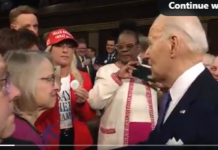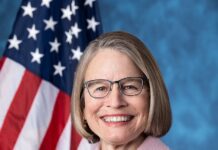The Lynnville-Sully School District rejected every request for a religious exemption it received in regards to wearing masks, according to Superintendent Shane Ehresman. Ehresman said the district received less than 10 requests for medical or religious exemptions. And every religious exemption was denied.
The district started the year without any mask requirement, but that changed when Gov. Kim Reynolds changed her guidance that allowed students to stay in school even if they were exposed to a COVID case so long as they wore a mask.
Prior to the change, Ehresman said the high school found itself in a situation where 85 percent of the school was quarantined based on just seven positive cases.
The school board decided to adopt the mask mandate after Reynolds changed the guidance, but it wanted to offer medical and religious exemptions.
“We drafted up something similar to the immunization form that the state had,” Ehresman said. “We sent that out and we told families we’re going to review all of these on an individual basis because the board is implementing this to make sure we don’t have to quarantine a bunch of kids and send them home.”
Some of the medical exemptions were approved, and some were not. But every religious exemption was denied.
“We worked with our legal counsel and tried to determine when do you approve this or not because everybody would possibly just write down this is a religious exemption or this is medical and we’re right back to square one,” Ehresman said. “When we received the religious exemptions, we tried to take a look at what exactly is their rationale and tried to balance their rights as citizens versus the situation we’re in with the pandemic.”
Ehresman reviewed the religious exemptions with the school’s legal counsel and reviewed if wearing a mask infringed on their religious rights.
“That’s kind of the big question,” he said. “It’s a balancing act. We did not approve of them if they were just philosophically against it or morally or personally. If you just didn’t want to wear it, that was not a good enough reason even though you filled out a religious exemption.”
In Ehresman’s judgment, most of the religious exemption applications were more based on philosophical and personal opposition to face coverings.
“And that’s what we told the families,” he said. “We said ‘We don’t feel we’re infringing or trampling your religious liberties or freedoms, but your argument is based on philosophical or personal reasons.'”
I asked the obvious follow-up question — did the religious exemptions pose any religious appeal or include any Bible verses, for instance.
“Yes,” Ehresman said. “They did have a religious argument. Several of them would cite some Scripture and cite some different things and again we evaluated all of those items. So you have to figure out is that enough to, um, ensure the safety of other students because it’s more of a public health issue in the pandemic. We had to weight does this impose a burden on the student and deny them religious liberty.
“And so, you weigh those — their justification, you need to weigh our public interest. There isn’t a mathematical formula. It’s very gray. But I am not a mask expert, I’m not a COVID expert and I’m not a religious expert. I try to rely on our legal counsel to help guide us through this. I was very open and transparent and had really good conversations with our families because we’re a small community and everybody knows everyone.”
Legal counsel wanted it to be a “genuine and sincere religious belief,” not something merely based on philosophical, moral or personal opposition. I asked if the counsel had expertise in religious liberty or had argued religious liberty cases in court. Ehresman said their expertise is in school law — staffing issues, separation of church and state, “lots of different things.”
“If (a genuine and sincere religious belief) could be demonstrated in a religious exemption, then we would grant the religious exemption and we did not see that in the religious exemptions that were provided to us,” Ehresman said.
Another obvious follow-up question — what was missing from the applications then if they included Scripture?
“That’s a really good question,” Ehresman said. “And that was something that we tried to evaluate was the individual request to determine not only is this part of the individual’s belief and whether it is sincerely held, but also are those beliefs about the face coverings, does it really impose a substantial burden to the student’s exercise of religious beliefs? Is there a particular verse or anything like that? I don’t know. We would have to evaluate the specific exemption that came in.”
While the district offers a religious exemption for vaccinations, the policy is different for face coverings because it hasn’t been a subject anyone has approached before.
According to Heather Doe, the communications director for the Iowa Department of Education, the policy for face coverings is not the same as immunizations because religious exemptions for vaccinations are in law.
Doe said local districts are responsible for setting policies about the use of masks and face coverings in consultation with legal counsel and local public health.
For what it’s worth, Ehresman said most districts did not even offer religious or medical exemptions for masks.
The district provided a form for a religious exemption to wearing a face covering. It stated that a religious exemption may be granted only if wearing a face covering conflicts with a genuine and sincere religious belief.
“By signing this certificate, you are attesting that wearing a face covering conflicts with a genuine and sincere religious belief and that the belief is in fact religious and not based merely on philosophical, scientific, moral, personal or medical opposition to face coverings.”
The form was indeed adapted from the Iowa Department of Health religious exemption form vaccination.












